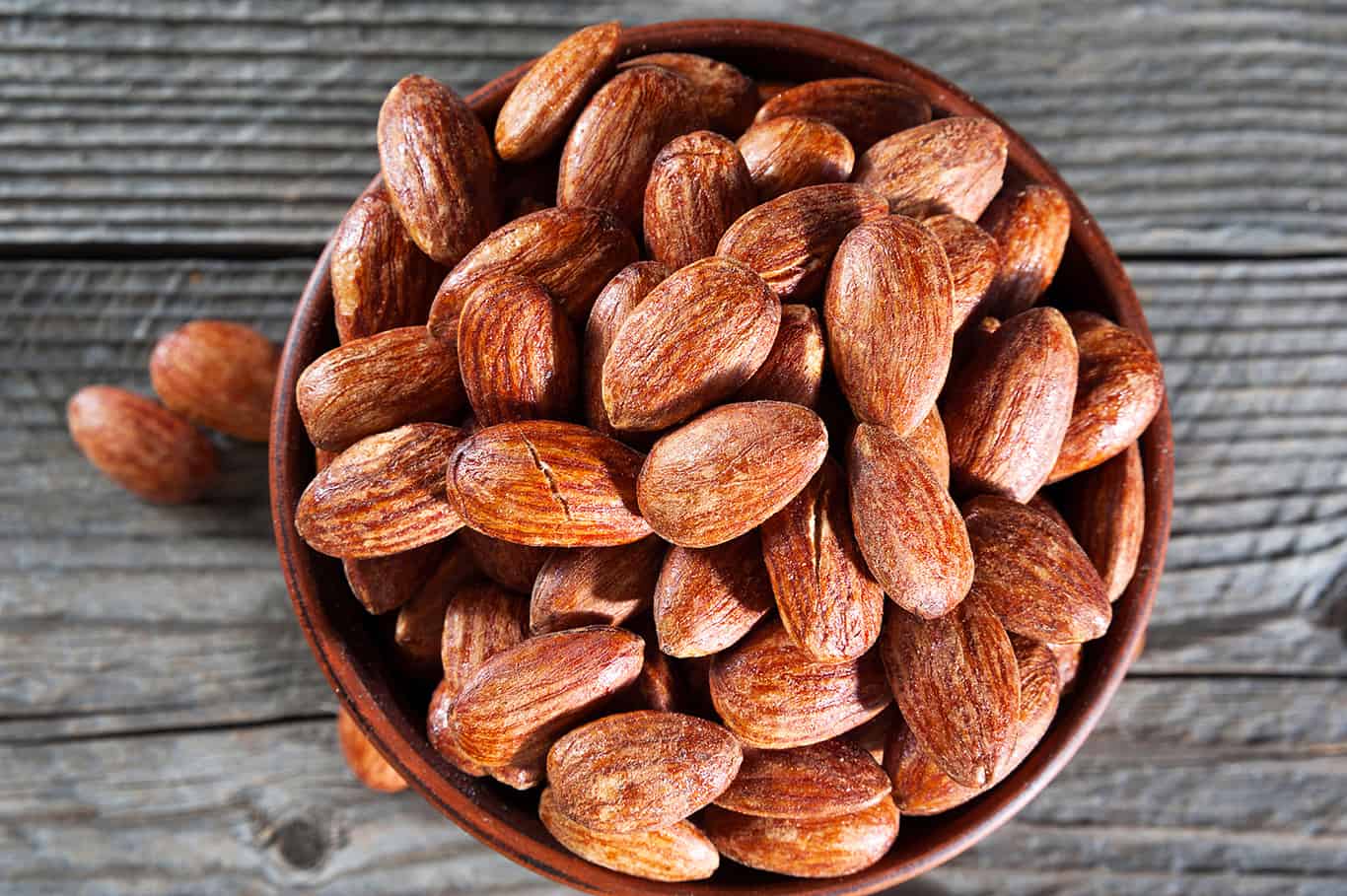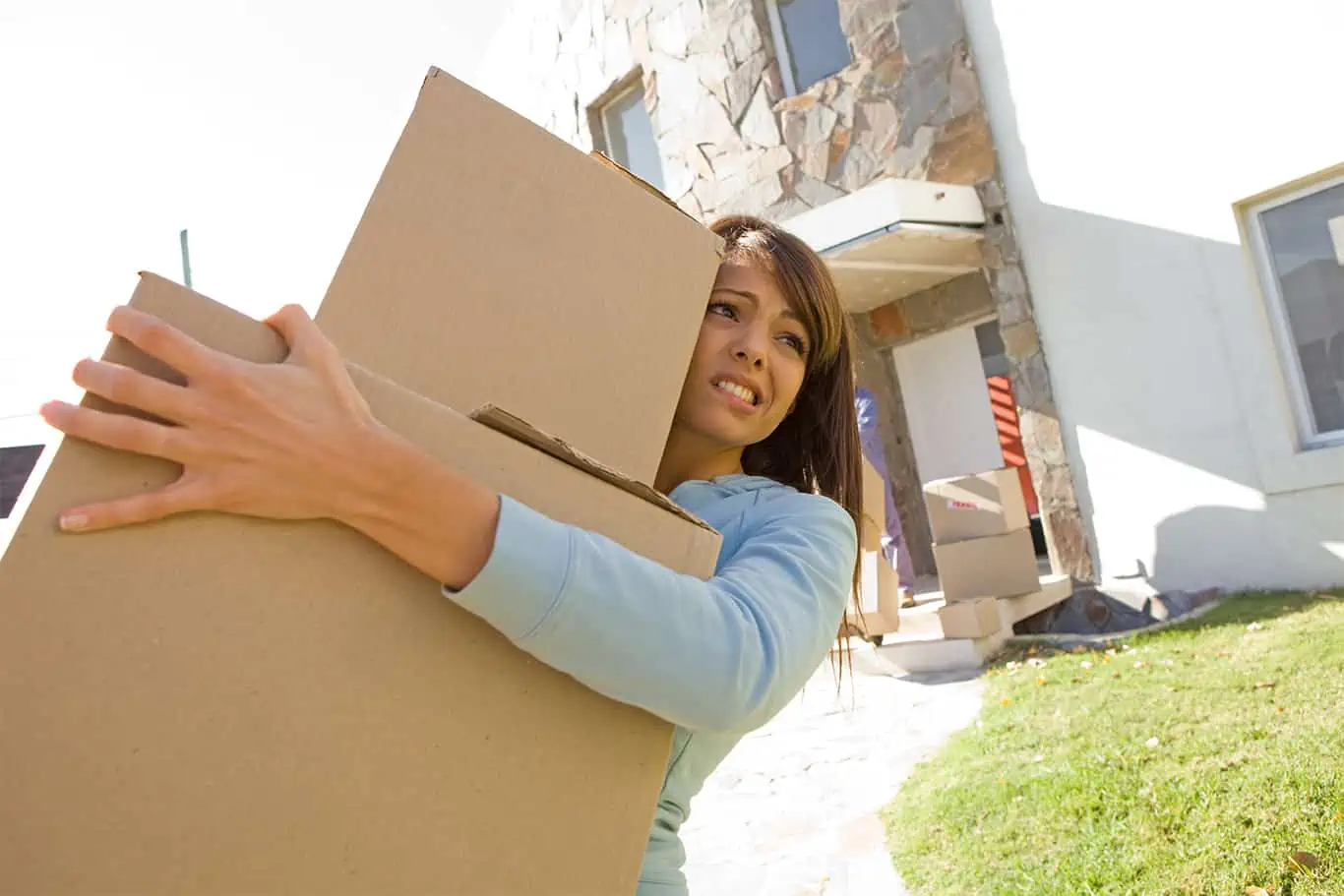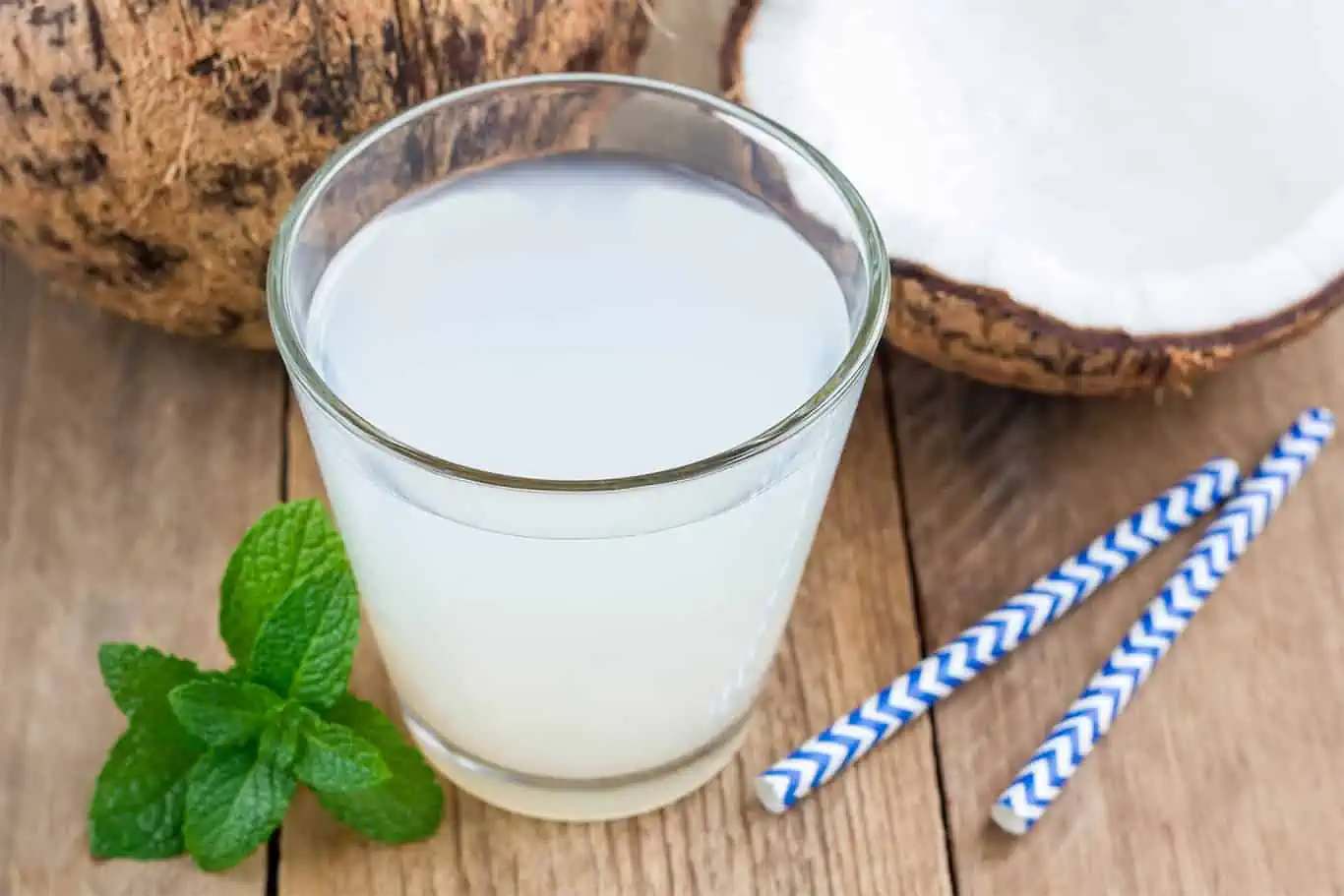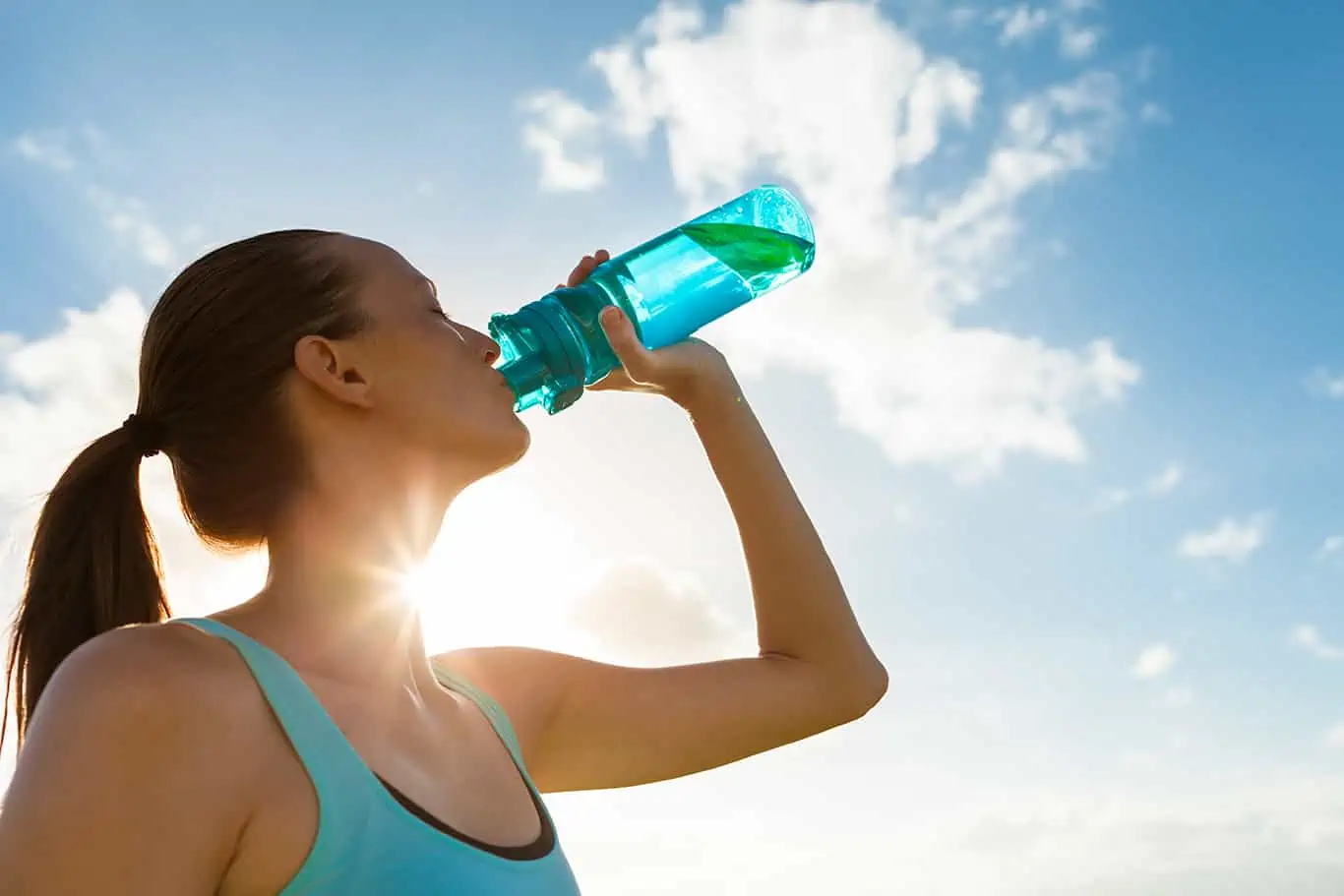Does the thought of a do-it-yourself move make you break out in a cold sweat? If so, good! You’ll want to get used to the feeling.
Especially with the mercury on the rise, you can bet on working up a good sweat hauling all your boxes and furniture out your door and into the summer sun. But don’t run out and stock up on Gatorade just yet!
We need to play doctor first.
Dehydration Happens Fast, and It Erodes Your Work Capacity
You might find yourself getting into a nice groove, moving all your stuff out and onto your truck like a pro. But don’t put off that water break. Here’s why: A loss of just 1% to 2% of body weight (in sweat) begins to compromise cardiovascular, body temperature regulation and muscular function, potentially leading to decreases in aerobic power. Heart rate rises an additional three to five beats per minute for every 1% of body weight loss. Okay, so what does that mean for moving?
This means for a 175-pound person, a loss of just 1.75 pounds – less than a quart of water and sweat – can mean the beginning of the slowdown.
Muscle endurance and maximal aerobic power decrease when 3% to 4% of body weight is lost. Slightly more than 2% loss of body weight can result in as much as a 35% to 48% reduction in physical work capacity.
So for the same 175-pound mover, this 2% loss of body weight translates into a half-gallon of sweat, give or take. Sounds like a lot, but read what this article on Hammer Nutrition tells us: “On average, you lose about one liter (approx. 34 ounces) of fluid per hour of exercise. Extreme heat and humidity can raise that amount to three liters in one hour.” Yikes!
Even still, dehydration of greater than 3% of body weight increases the risk of developing exertional heat illness (heat cramps, heat exhaustion, or heat stroke). Heat illness is common in sports and can occur after just one hour of intense exercise in the heat. Moving may not be a sport, but obviously it doesn’t take long to lose that weight – and feel the effects – when we’re moving furniture in 90/90 heat and humidity.
So… What’s the Best Way to Stay Hydrated?
Our friends over at competitor.com offer some input on the subject.
“Most sports drinks on the market are what sports scientists call isotonic, which means they contain a carbohydrate solution that is at 6-8% concentration. These drinks are in the middle of the spectrum in terms of absorption rate, with water being the most readily absorbed (hypotonic) and something like fruit juice, being greater than 8% sugar concentration (hypertonic) and therefore the least absorbable. Because the sugar concentration of most sports drinks is higher than that of most body fluids, they are not readily absorbed into the blood stream and are thus not optimal for the purpose of hydration.”
Michael F. Bergeron, Ph.D., FACSM also offers some hydration advice here for long workouts, which easily can be extrapolated to a typical summer day moving job. “Grab a beverage that has up to 500 mg sodium per 16 oz, and around 6 percent carbs (less than 28 g per 16 oz). Any more and your body will pull water from your blood to your gut for digestion.”
Both sources tout the idea of keeping carb intake down. Too much and the body has to work to digest them which then slows us down. No wonder it’s so hard getting back on track after wolfing down that lunchtime pizza!
Considering the high sugar content of soda (not surprising) and fruit juice (maybe surprising), we need to keep looking for that source of peak hydration (though diluted fruit juice is a recommended option by some, as we will see).
So what should you drink?
Caffeine Is a Diuretic, But…
This article from our friends Down Under suggests coffee doesn’t drain your system as much as some people think.
“If you drink coffee regularly and don’t drink too much it shouldn’t dehydrate you,” reads the claim.
“If”. “Too much”. “Shouldn’t”. There’s a lot of uncertainty in that statement. Regardless, the amount of liquid we need to gulp down during our summer move puts coffee right out of the equation. If you need that morning joe, go for it. But replacing that hourly liter or two of sweat-loss with Starbucks probably isn’t the way to go.
Coconut Water: Nature’s Gatorade?
The benefits of coconut water have been slathered all over the Internet. This article tries to destroy the hype (“The minerals found in coconut water…are widely found in other foods.”) But if we’re talking about staying properly hydrated, we see that coconut water has more sodium and less sugar than fruit juice, making it the better option.
As for a comparison to sports drinks? This WebMD article tells us coconut water has fewer calories, less sodium and more potassium than a sports drink. Prevention Magazine gives us a quick head-to-head comparison of the two, with coconut water winning handily.
Forbes, however, gives a more complete assessment:
“Although coconut water is rich in potassium, it is low in carbohydrates and sodium… When you exercise three hours or longer in the heat or adverse conditions, your body requires higher levels of simple carbohydrates and electrolytes not adequately found in coconut water. If you sweat a lot, neither coconut water nor typical sports drinks will have enough sodium, potassium or sugar to keep you from falling behind the curve. Having a sports bar, salty pretzels, a banana, raisins or some yogurt will likely give you the added electrolytes to refill your body stores.”
Good. I never could get used to the taste of that coconut water stuff.
Sports Drinks Vs. Water
Our friends at competitor.com sum up the question of when you should be drinking water versus when you should be drinking sports drinks or an electrolyte beverage. Yes, their focus is on running, but the science and the reasoning apply to us as well:
“Before and during a run, rehydration should be your main priority. When training in warm conditions, rehydration will allow you to maintain fluid balance and stay cool. Accordingly, your best choice before and during your run would be water, a heavily diluted sports beverage, or water with electrolytes. Your best choice after a workout is a drink that contains a good amount of sugars, electrolytes and possibly some protein.”
This makes sense especially in the run-up to lunch. Cutting back on those sports drink carbs by dilluting them leaves room – and energy – for our system to digest our food (okay, our pizza) without sucking our blood and our muscles completely dry. So consider pouring that half liter of Powerade into a jug of water.
Real Stamina: Advice From a Physiologist
Yes, we can carry furniture and haul boxes around all day in the blazing heat, but how does that compare to completing an ironman triathlon? We don’t know, exactly, but we figure it makes sense to listen to an ironwoman who also happens to be an exercise physiologist and nutrition scientist with almost two decades working in the field.
In an interview with Outside magazine last year, Dr. Stacy Sims laid her hydrating cards on the table. Her simple and unconventional claim: “Not only are most of the sports nutrition drinks on the market not optimized for best hydration, but many of them are actually impeding athletes’ performances.”
Whoa. We’re being told to can the Gatorade?

Her research goes deep, but she boils it down to this:
“Food in the pocket, hydration in the bottle.”
In other words, drink plenty of water. If you must suck down that juice or those sports drinks, dilute them. And EAT. Food is where we get the minerals and energy we need.
Sounds pretty simple to me.
Yet however you decide to do it, be sure to keep yourself hydrated and your cooling system running when you’re tackling your move. The alternative can be unpleasant, if not devastating.
If you’re doing your move on your own, Good luck! You might need all the help you can get.




